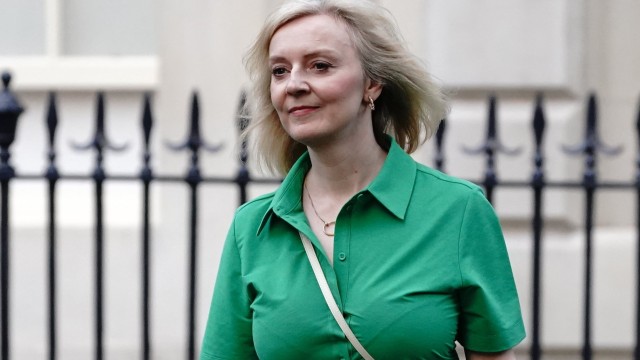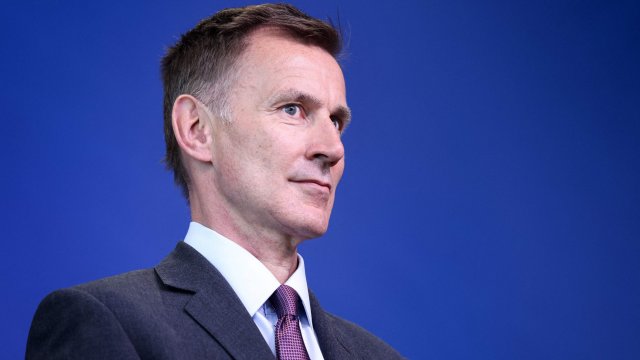Liz Truss is set to launch her biggest economic challenge to the Government yet after the Chancellor ruled out cutting taxes this year.
The ex-prime minister’s new Growth Commission will have its formal launch on Wednesday, with economists proposing an alternative forecasting method for the effect of tax and spending changes on the public finances.
Free-market Conservative MPs are urging Jeremy Hunt to reform the tax system and reduce the overall burden in a bid to shore up the Conservatives’ core vote ahead of the next general election.
But the Chancellor has privately concluded that with inflation more stubborn than previously expected, it will not be possible to cut taxes at the upcoming Autumn Statement. A Treasury source said: “We are slowly running out of time.”
The Growth Commission, which consists of a number of leading economists from around the world, is expected to argue that the economic modelling used by the Government should be more “dynamic”, meaning that it takes account of the effect that changing the tax rate or spending more on public services can have on economic growth over time.
Ms Truss has criticised organisations such as the Office for Budget Responsibility (OBR) and Institute for Fiscal Studies (IFS) which have warned against short-term tax cuts on the grounds they would force up Government borrowing to unsustainable levels. “It’s about challenging the OBR, IFS view of the world,” a source close to the former prime minister said.
A spokesman for Rishi Sunak said: “We are not going to countenance tax cuts if they would make the battle against inflation harder.” Mr Hunt and other Treasury ministers have warned against any move to pump more money into the economy, which they say would risk making inflation more persistent.
Speaking in the City of London on Monday, the Chancellor said: “Working with the Governor and the Bank of England, we will do what is necessary for as long as necessary to tackle inflation persistence and bring it back to the 2 per cent target.
“In January the Prime Minister made halving inflation this year the first of his five priorities. Delivering sound money is our number one focus.
That means taking responsible decisions on public finances, including public sector pay, because more borrowing is itself inflationary. It means recognising that bringing down inflation puts more money into people’s pockets than any tax cut.
“And it means recognising that there can be no sustainable growth without eliminating the inflation that deters investment and erodes consumer confidence. Tackling inflation therefore unlocks the Prime Minister’s other two economic priorities – growing our economy and reducing debt – but because it is a prerequisite for both, it must come first.”
Ranil Jayawardena, who was environment secretary in Ms Truss’s government, has called for tax reforms that would allow married couples to share their personal allowance and encourage parents to consider staying at home. He also demanded a cut to the “deeply unfair and wildly unpopular” inheritance tax, as a prelude to abolishing it altogether in future.
The ex-minister said: “It feels like the tax man is breathing down our necks from cradle to grave. It is time for tax reform at every stage of people’s lives, from first-time buyers to homeowners, from couples to entrepreneurs, and for those who have worked their whole lives to hand something down. It is good politics and it is good tax policy.”
Mr Hunt has announced a new set of pension reforms which will ensure that the biggest investment firms commit at least 5 per cent of their assets to start-up companies and other firms not listed on the stock market, a move designed to make it easier for small businesses to grow.

